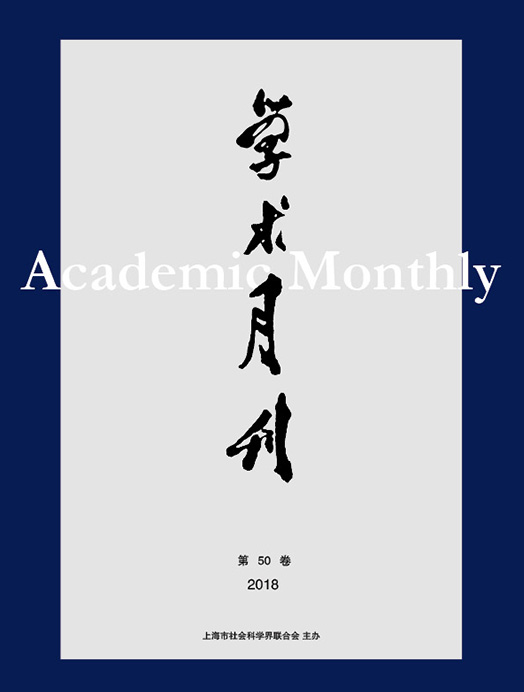-
[1]
Tao MA
, Yu LIU
. Characteristics and Enlightenment of Chinese Traditional Population Economic Thought. Academic Monthly,
2022, 54(7): 70-79.
-
[2]
Xing WANG
. Skill Formation, Skill Formation System and Research Imagination of Economic Sociology. Academic Monthly,
2021, 53(7): 132-143.
-
[3]
Xin DAI
. Rediscovering Social Norms: A Economic Sociological Perspective of Cyberlaw in China. Academic Monthly,
2019, 51(2): 109-123.
-
[4]
Jiming CAI
, Minsi ZHENG
, Mengxing LIU
. The Criteria for Judging Whether China Economic and Social Development Plans are Scientific and Reasonable. Academic Monthly,
2019, 51(9): 46-56.
-
[5]
Junfan WU
. The Changes of Geographical Environment and the Response of Human Activities on the South Bank of the Yangtze River Estuary Since the Early Ming Dynasty. Academic Monthly,
2022, 54(5): 172-182.
-
[6]
. . Academic Monthly,
2020, 52(3): 50-53.
-
[7]
CHEN Shiyi
. Economic Growth and Environmental Justice —— Evidence from China's Economic Zone Program. Academic Monthly,
2023, 55(7): 31-45.
-
[8]
. Economic Thought, Confidence of Way and Historical Evolution (Symposium). Academic Monthly,
2020, 52(3): 45-49.
-
[9]
Fenglin ZHANG
. Rethinking over Marx’s Institutional Economics Thoughts. Academic Monthly,
2021, 53(2): 50-64.
-
[10]
Xudong CHEN
, Lin CHENG
. Inheritance and Innovation of Traditional Chinese Economic Thought and the Construction of Chinese Economics in New Era. Academic Monthly,
2023, 55(1): 56-68.
-
[11]
ZHANG Xinyu
. Policy Dividends, Geographical Endowments and Regional Disparity of Economic Growth —— Evidence from Development Strategy of Yangtze River Economic Belt. Academic Monthly,
2023, 55(7): 46-60.
-
[12]
DUAN Bo
. The Modern Transformation of Traditional Chinese Economic Thought: A Perspective of Refining Iconic Concepts. Academic Monthly,
2024, 56(3): 5-19.
-
[13]
Xudong CHEN
, Lin CHENG
. Research on History of Modern Chinese Economic Thought and Construction of Academic Discourse System in the New Era. Academic Monthly,
2019, 51(6): 45-52.
-
[14]
Jingkui LI
. IS-LM Model: An Investigation from the History of Economic Thought. Academic Monthly,
2022, 54(8): 45-54.
-
[15]
Jie MENG
. Surplus Value and Socialist Political Economy with Chinese Characteristics: An Investigation from Intellectual History. Academic Monthly,
2021, 53(2): 65-74.
-
[16]
,
. . Academic Monthly,
2018, 50(01): 63-77.
-
[17]
Guoquan CHEN
. Economic Foundation, Government Form and Functional Separation Theory. Academic Monthly,
2020, 52(11): 66-74.
-
[18]
,
. . Academic Monthly,
2017, 49(03): 179-184.
-
[19]
Zhenman ZHENG
. Forestry Economy and Local Society of Mountain Areasin Ming and Qing Periods. Academic Monthly,
2020, 52(2): 148-158.
-
[20]
Yinxing HONG
. Capital in Socialist Market Economy: Attributes, Acts, and Norms. Academic Monthly,
2022, 54(5): 39-45.



 沪公网安备 31010102003103号
沪公网安备 31010102003103号 DownLoad:
DownLoad: